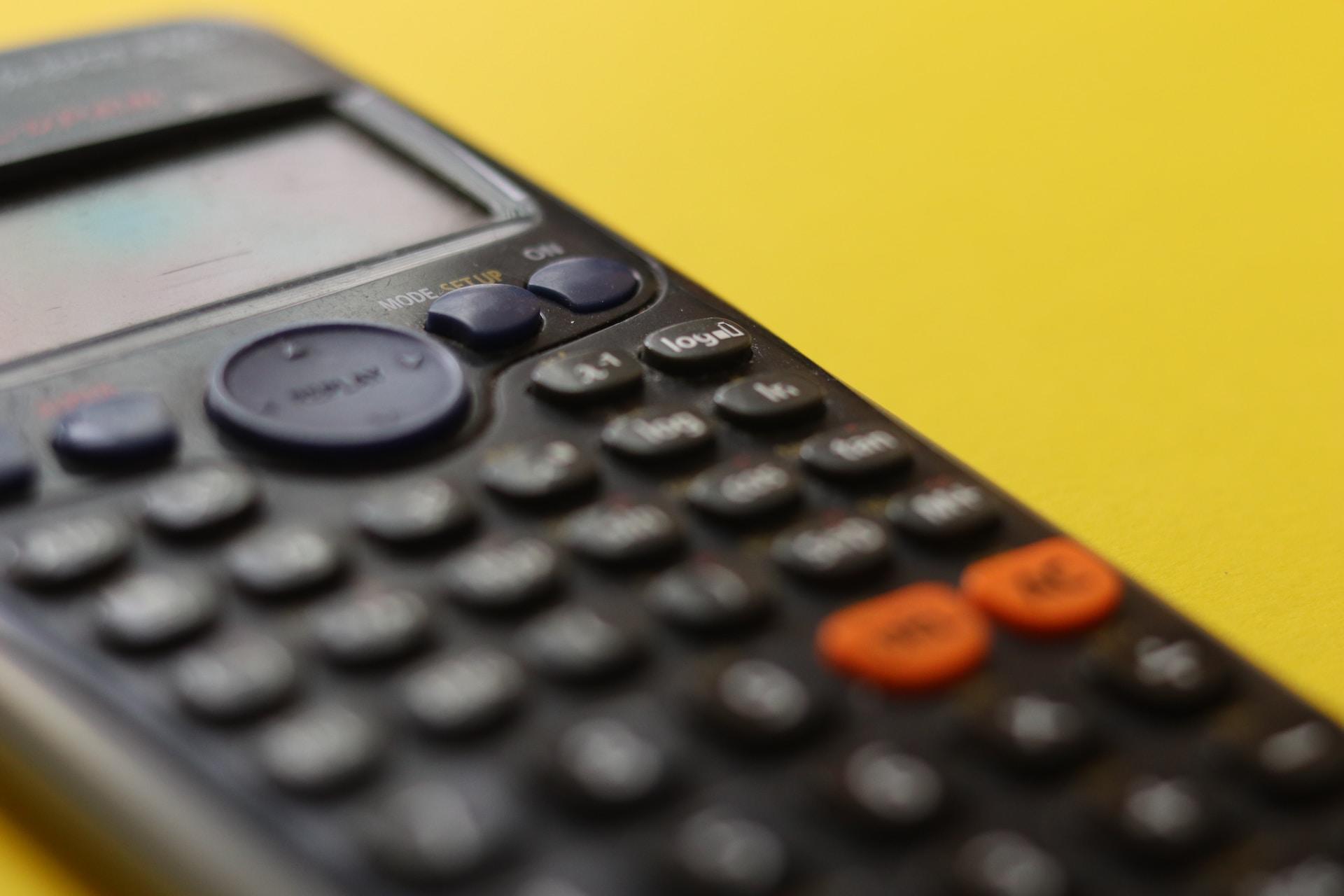Everybody has at least one memory from maths class. Mine is my algebra teacher removing his implanted tooth to better scrape every strand of meat from the chicken leg he was eating during class. We students were supposed to be working on our assignment but his spectacle captivated and horrified us such that we called him out on it.
You might think that story has nothing to do with getting ahead in maths. On the contrary, it's a great start to our analysis of how to get better at math. My teacher's hands-off pedagogy underscores the fact that it's up to you to master maths.
In this article, Superprof presents strategies to boost your math skills and your confidence in math class. Along the way, you'll discover how to improve your reasoning skills and logic. After all, what is mathematical thinking other than reason and logic?

How to Get Better at Maths With Numbers Sense
Most everyone has a numbers sense. During our earliest years, we internalised the fact that bigger numbers represent 'more' than smaller numbers. We master the concept that the figure '2' represents twice the amount of something and '3' is thrice the amount. We can make sense of a number line and accept the values those numbers represent.
Unfortunately, that's as far as most people's numbers sense goes. From that point, working with numbers is a struggle but it doesn't have to be. To get better at maths, you should improve your relationship with numbers through frequent and repeated usage. You can start by doing basic operations like addition and subtraction in your head rather than with a calculator.
We have also compiled a list of cool maths tricks to help you get ahead.
Estimation and Reason in Maths
As your mental maths skills grow, you'll get better at estimating and reasoning. Your maths skills will improve when you can estimate an answer before calculating it. For instance, if you're subtracting a two-digit number from a four-digit one and come up with an answer that only has three digits, you should know something went wrong.
Place Value
Internalise place value: the thousands, hundreds, tens and ones (units). When you understand place value's importance, you can better grasp the value of each number in a digit. The number 325 isn't arbitrary; it represents 300 + 20 + 5 of something. Mastering place values helps you build your estimation-reasoning skills.
Multiplication Tables
Multiplication tables are the one component of maths study you should memorise; the sooner and more thoroughly, the better. If you didn't get the chance to master them in primary school, do so now. Get yourself to the point where answering questions like "What's 5 x 9?" is a reflex, not an occasion for deep thought.
Maintain maths fluency by doing mental maths every day. For instance, you can calculate percentages in your head using the three strategies outlined above. Let's say you want to know what 27% off of a $19.68 sale item is.
You'll use place value to shift the decimal and estimation to round up. Then, use your multiplication skills to arrive at the correct percentage and subtract that from the original price. Presto! You know how much that item's sale price is.

How to be Good At Maths: Understand, Don't Memorise
Memorising information is part and parcel of the academic experience but the practice has its limits. It's fine to memorise static information like historical dates and maths formulas because they don't change. But there's a major difference between the two types of information.
Historical events happened on specific dates because of a confluence of events. Mathematical formulas remain static because they consistently prove what exists. It's senseless to ask how or why John Monash died when he did but it makes perfect sense to puzzle over how the Pythagorean Theorem works. More importantly: why does it work?
Find Real-World Contexts
When you encounter a new math concept, frame it in terms that you understand. For instance, if you're struggling over ratios and proportions, think of them in a food context - maybe the ratio of veg to meat on your plate. You might use architectural precision to understand geometry's concepts.
Diagramming Problems
To better understand the fundamentals of concepts you wrestle with, get hands-on. Drawing pictures and/or diagrams helps you train your brain to work with the new information. It gives yourself different ways to process information - manual, visual and intellectual.
It also helps you make connections to previously mastered concepts. The sooner you can make these connections, the less you'll wonder how to be good at maths.

How to Get Better at Maths With Problem-Solving
Most people think problem-solvers have lots of knowledge so they come up with answers quickly. In fact, the trick to problem-solving is asking the right questions until the answer becomes obvious.
The most effective problem-solving strategy takes four steps. First, you must understand the problem. Next, devise a plan to deliver a response and put your plan into action. The fourth and most crucial step: what did you learn from this problem and your result?
Build Understanding
Think of math problems in mathematical terms, especially word problems. This type of maths question uses a lot of language to 'cloud' the desired response. So you should look for mathematical terms like 'How much?' and 'What proportion?'. Keywords such as these will inform the type of operation you need to use.
Plan Your Answer
Students who struggle with maths bemoan the fact that there's always more than one way to arrive at the correct response. Save yourself the stress by planning how you will respond to every question. You might make a list of the steps you'll take. Or you might draw/graph your answer out to eliminate possible answer paths.
Implement Your Plan
Once you settle on a strategy to answer the question, put it to work. Be sure to check your work at every step; you don't want a misplaced decimal to cost you any points! Don't forget to review your answer for accuracy before moving to the next problem.
Looking Back
Before handing your paper in, look it over. Put your estimation and reasoning skills to work to make sure all your answers make sense. If they don't, figure out why and fix your mistake. Finally, reflect on your work: what did you learn from it and how does it reflect improvements from your last maths session?
This process isn't typically taught in schools but if you benefit from exceptional maths tutoring, you probably follow this procedure as a matter of course. Problem-solving skills are in high demand in the workforce so these steps will serve you outside of maths class as well as in. These four steps are a template of rational thought that you can apply to any situation.

How to Get Better at Math With Every Mistake
Making mistakes does not mean you're stupid or incapable (of doing maths). As my online maths tutor is fond of saying, making mistakes is an essential part of learning; learning from making mistakes builds a growth mindset. Doing so is a simple matter of applying the problem-solving skills you just read about.
Understand Your Maths Weaknesses
What is it about Maths that does you in? Do you have similar problems/feelings in other academic areas? Is the trouble structural - your math class is too early or too close to lunch, you find your teacher abrasive or your classmates too loud? Do you have trouble grasping basic maths concepts or seeing the point of maths?
A maths tutor Melbourne can help you identify your weaknesses and create a plan to overcome them.
Plan Your Improvement Strategy
If you struggle in every subject, you should consider getting tested in case you need special educational concessions. If maths is your only trouble subject, first examine the structural issues; they're easy to fix. Once those are resolved, look at any personal barriers you might have to becoming proficient in maths.
Put Your Plan Into Action
Don't be afraid to make mistakes, just make sure you learn from them. Rather than erasing or scribbling out mistakes, draw a line through them and make a note about what you learned from each one.
It's fine to feel discouraged, but only as long as it's temporary. Give yourself a break; you won't become a maths whiz overnight. You must practise and practise some more, using every strategy outlined so far.
Practise mental maths as you go about your day and use your skills every chance you get. Seek to understand problems rather than trying to find shortcuts around them. Challenge your maths skills at every turn.
Reflect On Your Accomplishments
As with any other problem-solving exercise, the last step is crucial. Looking back over your journey to maths proficiency, it's okay to marvel how you were once such a maths dunderhead. Embrace past mistakes like you would a stamp in your passport to an exotic location. The maths mindset you once had is now as foreign to you as beaches you've never walked on.
You needn't fret over how much time you need to get good at maths. When you embrace a personal growth mindset, you must accept that it will be a lifelong journey. Developing and building math skills is just one phase. You've got the rest of your life to keep getting better.
Summarise with AI:















